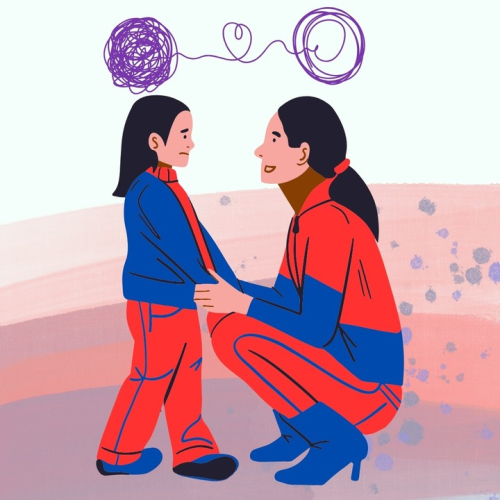
Election season can bring out strong emotions, and it’s natural for parents to want to help their children understand what’s happening without increasing their anxiety. How can we discuss the election with our kids, ourselves, and others without adding to the stress?
Start with Open-Ended Questions
When talking to your child about the election, open-ended questions allow them to express their feelings and concerns in a safe environment. You might ask:
Encouraging your child to explore their thoughts helps them process complex emotions while knowing they are being heard and supported.
Addressing Election Misinformation
In today’s fast-paced media environment, misinformation can lead to confusion and anxiety. Teach your child the importance of verifying facts before discussing the election with peers to prevent the spread of misinformation that could increase stress.
Model Calmness and Self-Regulation
Children often mirror their parents’ emotions. If you’re anxious about the election, your child may pick up on it too. Managing your own emotions is important before engaging in charged conversations. Take a moment to relax—go for a walk, drink water, or listen to a favorite song. Like the saying, “put on your oxygen mask first,” managing your own anxiety is key before helping your child with theirs.
Simple Techniques to Reduce Anxiety
If you or your child are feeling anxious, try these quick relaxation techniques:
These simple steps can help you feel grounded, making conversations less overwhelming.
Fostering Respectful Conversations
It’s important to allow your children, friends, or family to express their opinions. Instead of reacting with a combative tone or dismissing feelings, try saying, “Oh, I didn’t know this—where did you find out that information?” This opens up a respectful dialogue, even if you disagree. Teach your children that it’s okay to have different viewpoints, and disagreements can be handled with kindness.
Help Children Set Boundaries Around Election Conversations
Teach your children that it’s okay not to engage in election-related discussions. Provide them with phrases they can use, like:
Limit Media Exposure
With the constant news cycle, children may be overexposed to anxiety-inducing election coverage. Try to limit the media they consume and focus on calming, positive activities instead.
Remember
Children are like sponges—they absorb how you feel. By modeling self-regulation and grounding techniques, you encourage your children to practice those calming methods too. Take time as a family to go on walks, have a dance party to release nerves, or take mindful moments to breathe and relax.
It’s also a good idea to discuss personalized strategies with your therapist to explore healthy ways to engage with children, friends, or family members around charged conversations. Setting healthy boundaries and managing election anxiety is key to maintaining emotional well-being during this time.